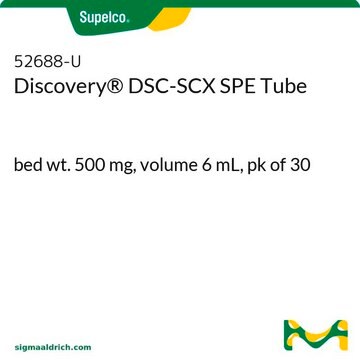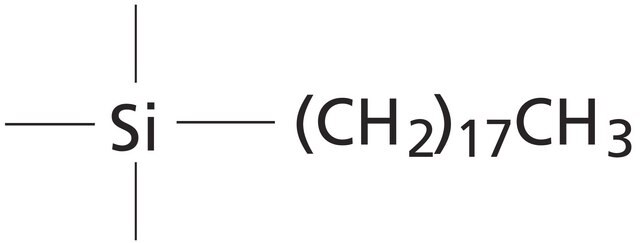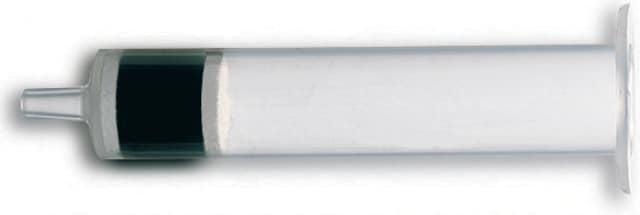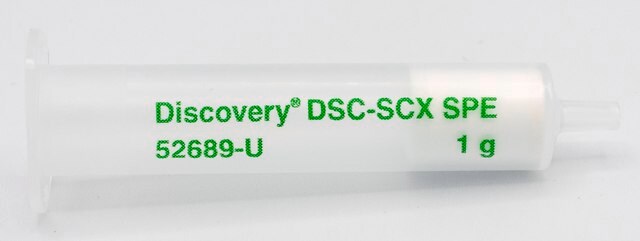52685-U
Discovery® DSC-SCX SPE Tube
bed wt. 100 mg, volume 1 mL, pk of 108
About This Item
Recommended Products
material
polypropylene tube
Quality Level
composition
bed wt., 100 mg
packaging
pk of 108
technique(s)
solid phase extraction (SPE): suitable
surface area
480 m2/g
volume
1 mL
matrix
Silica gel base material (irregularly shaped, acid washed)
matrix active group
sulfonic acid bonding
particle size
50 μm
pore size
0.9 mL/g pore volume
70 Å pore diameter
capacity
0.8 meq/g total capacity
application(s)
food and beverages
separation technique
ion exchange
Looking for similar products? Visit Product Comparison Guide
Related Categories
General description
Sample Matrix Compatibility: Organic or aqueous solutions
- A polymerically bonded, benzene sulfonic acid functional group, pKa (< 1.0)
- Counter ion is H+
- Silica support allows for use with very organic solvents (no shrinking/swelling)
- Excellent capacity (0.8 meq/g) for cleaning up solution phase combinatorial chemistry reactions (removing target molecules from reaction by-products and excess reagents)
- The presence of the benzene ring offers some mixed-mode capabilities (hydrophobic interactions) that should be considered when extracting cations from aqueous matrices
Legal Information
signalword
Danger
hcodes
Hazard Classifications
Aquatic Chronic 2 - Eye Dam. 1 - Flam. Sol. 1 - Skin Corr. 1A - Skin Sens. 1
Storage Class
4.1B - Flammable solid hazardous materials
wgk_germany
WGK 3
flash_point_f
Not applicable
flash_point_c
Not applicable
Choose from one of the most recent versions:
Already Own This Product?
Find documentation for the products that you have recently purchased in the Document Library.
Articles
SPE retention mechanism in this case is based on the electrostatic attraction of charged functional groups of the analyte(s) to oppositely charged functional groups on the sorbent.
Protocols
Melamine was extracted from milk using Supelco® Discovery® DSC-SCX SPE tubes. Analysis was performed by HPLC, using an Ascentis® Express HILIC column.
Retention occurs through polar interaction between the sorbent and analytes. Typical sample matrices that can be employed in normal-phase SPE include hydrocarbon or fatty oils diluted in a solvent like hexane, isooctane, chlorinated solvent, THF, diethyl ether, or ethyl acetate.
Our team of scientists has experience in all areas of research including Life Science, Material Science, Chemical Synthesis, Chromatography, Analytical and many others.
Contact Technical Service











